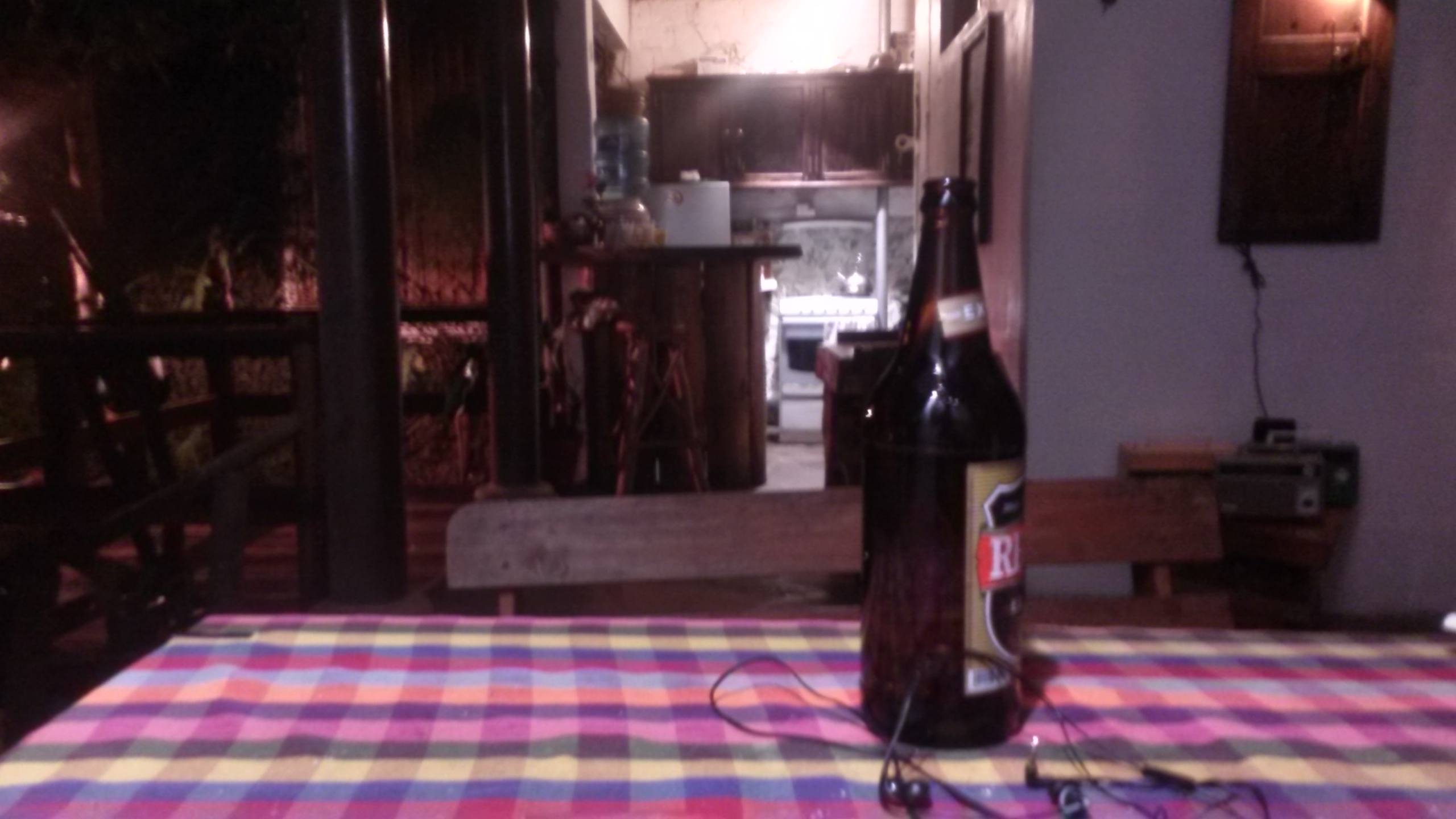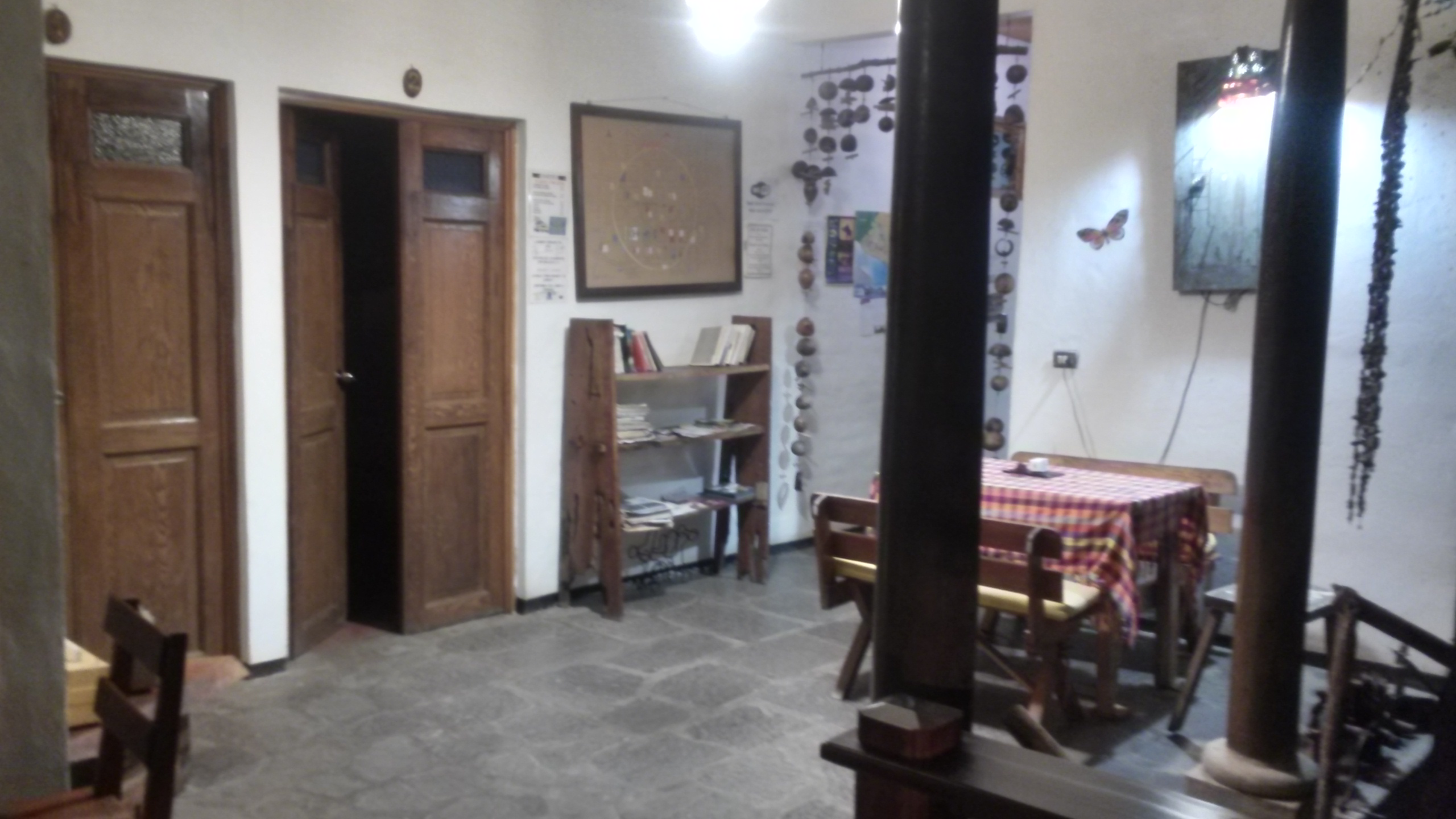The 6:30am bus from El Tunco to Sonsonate, where I would connect for Juayua (Why-OOH-ah) was the first time I was separated from my bag. The ayudante took it from me as I boarded through the rear emergency exit and placed it behind the last row of seats. I took a seat several rows up in the opposite row and spent the next hour straining my neck turning around as people boarded and exited through the same door. Men were going to work, machetes slung over their shoulders, sheathed or wrapped in paper. Children in uniform were on their way to school. Women tranported large tubs of things to sell.
It was like riding the subway.
People got on and stopped, leaving open space in the middle of the bus even as more people packed on, and only moved in at the insistence of the ayudante. They sat on the aisle, and when someone asked to sit down, they reluctantly allowed them to climb over them, rather than standing and letting them in or moving to the window. An evangelical man at the front, stood half in a seat, half in the aisle, taking up a space that could have been occupied by three people, and railed at us about our sins. Soon the aisle was too crowded for me to see where my bag was stashed. So I just looked out the window, trusted in the honesty of the Salvadoran bus riding public(which is all of them) and let it be. The road followed the coast much of the way, and it was as as beautiful as Big Sur, mountains rising on the east and cliffs falling away to the Pacific Ocean on the west.
My bag was there when I got off at Sonsanate. Somewhere along the way, the liter water bottle that I had been carrying with me since Costa Rica had fallen out of the sidepocket and rolled under the seats, and I wasn’t about to go searching for a water bottle that had spent time on the floor of an Salvadoran bus.
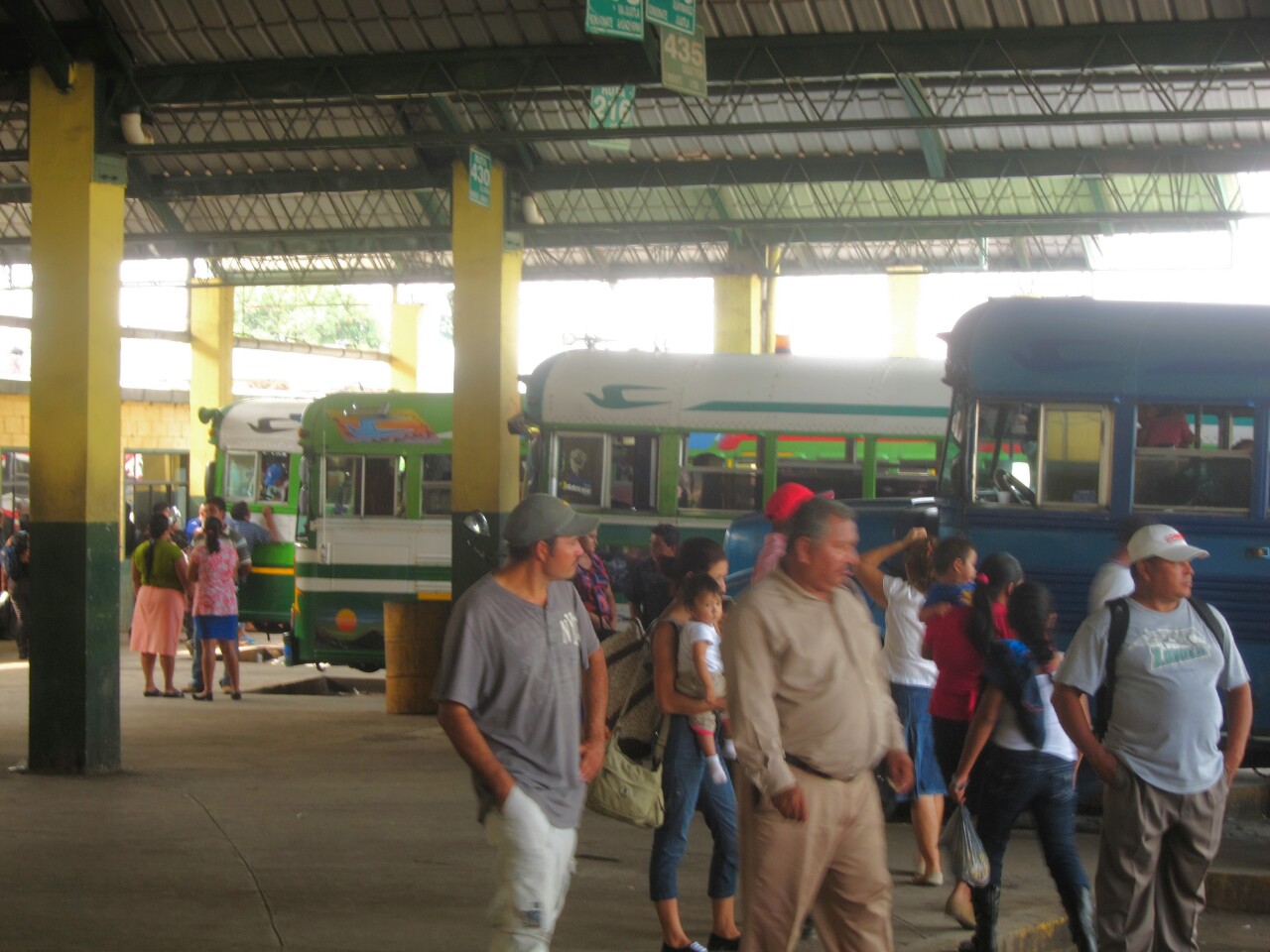
From there, it was a 45 minute ride to Juayua. I didn’t have a map of the town, so on the bus I discretely checked Google maps on my phone.
The T-Mobile unlimited international data has saved me quite a few times.
We ascended from the heat into cool mountain air.
The bus stopped a few blocks from the Parque Central, and my hotel was a few blocks north of that. Except it wasn’t I walked up and down the street and found another hostel I had seen on the map, but no Hotel Anahuac, so I walked back to the park to recalibrate, ignoring the calls of “Amigo, amigo” from the groups of men sitting on corners, the same way I do when I hear someone in New York say “Hey buddy, can I ask you a question?”
I checked the hotel website, and saw that Google Maps had it in the wrong place, a few streets to the west. I was greeted by Cesar, the owner, an English speaking Salvadoran in his early 40s. He had a room, and he told me about the documentary that he had directed or produced on the revolutionary Salvadoran poet Roque Dalton he was going to be showing in the garden the following night, Saturday, on the 39th anniversary of his murder. It was subtitled in English, he assured me. The name rang a bell, so I told him I’d probably be there.
My room was large, clean and airy. Cesar warned me it was the beginning of mosquito season, but they only sprayed in they got bad and the guest requested it. I told him I had a mosquito net I could hang from the ceiling beam if it came to that.
The garden was fronted by covered terrace set with tables, a nice plain to shelter from the rain, which had started falling every day for several hours in mid-morning or early afternoon.
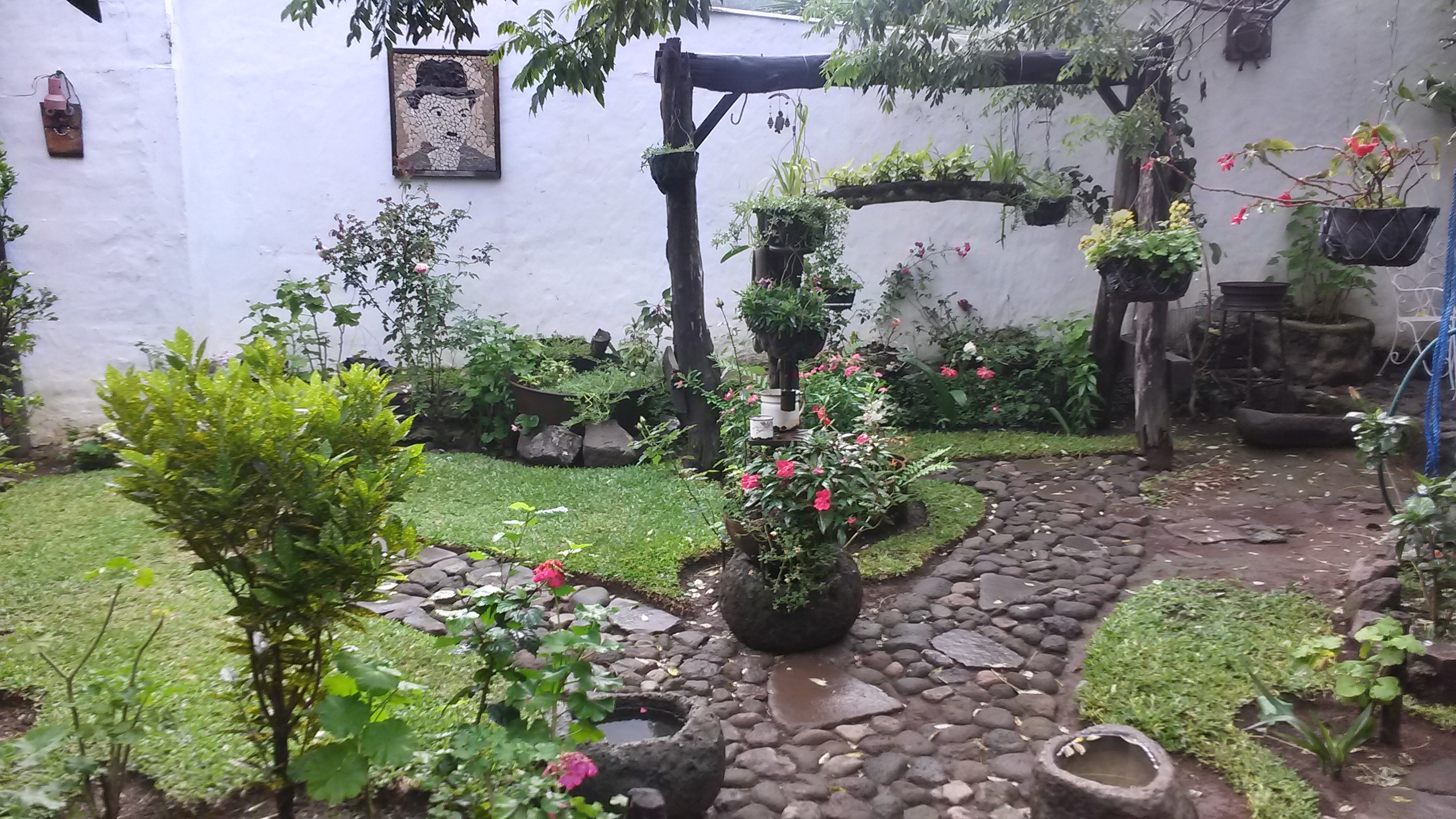
That day it rained from 1pm until 3pm, after which I went out to explore the rain-slicked cobbled streets of Juayua. It was small and walkable. Tuk-tuks buzzed around. At the park, men set up the booths and tents for the weekend Feria Gastronomica, the food fair, a Salvadoran Taste of Chicago, my reason for being here.
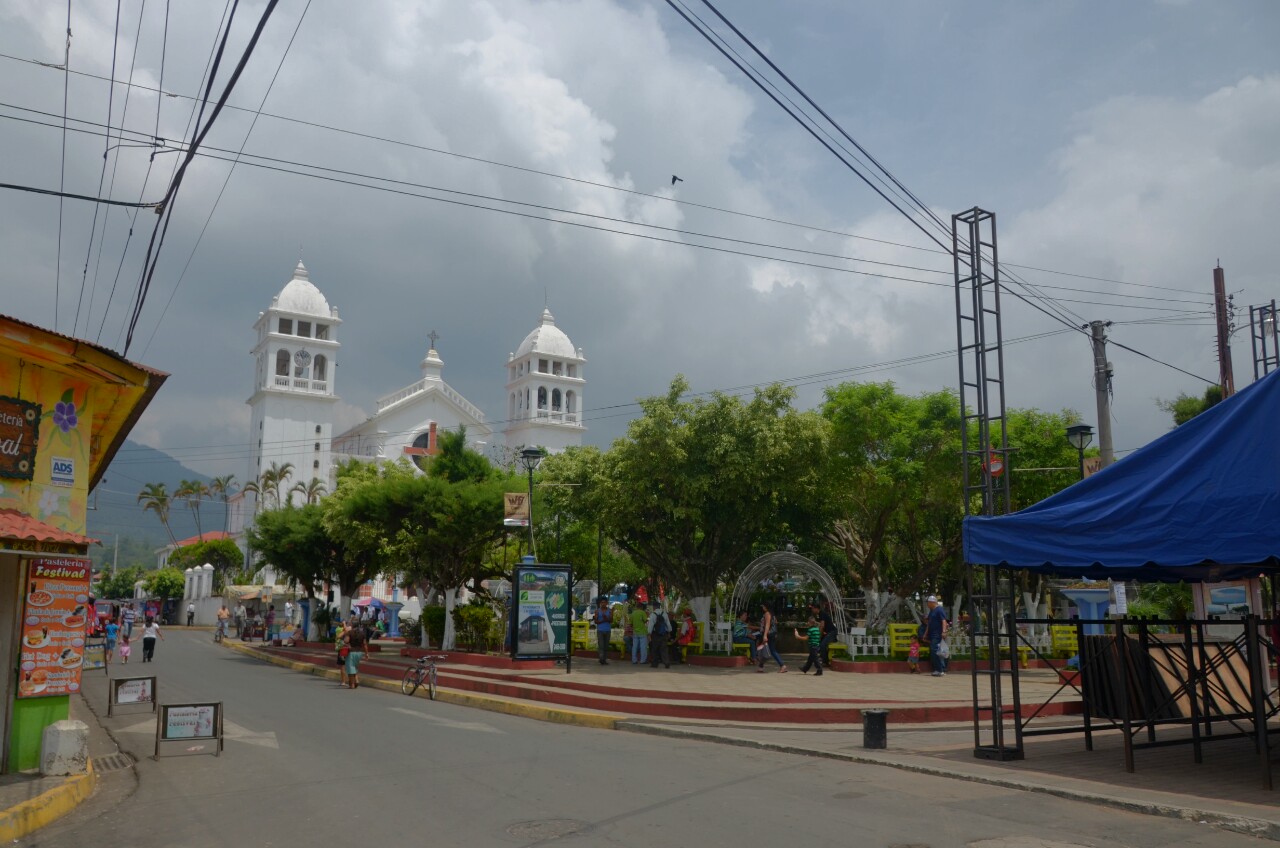
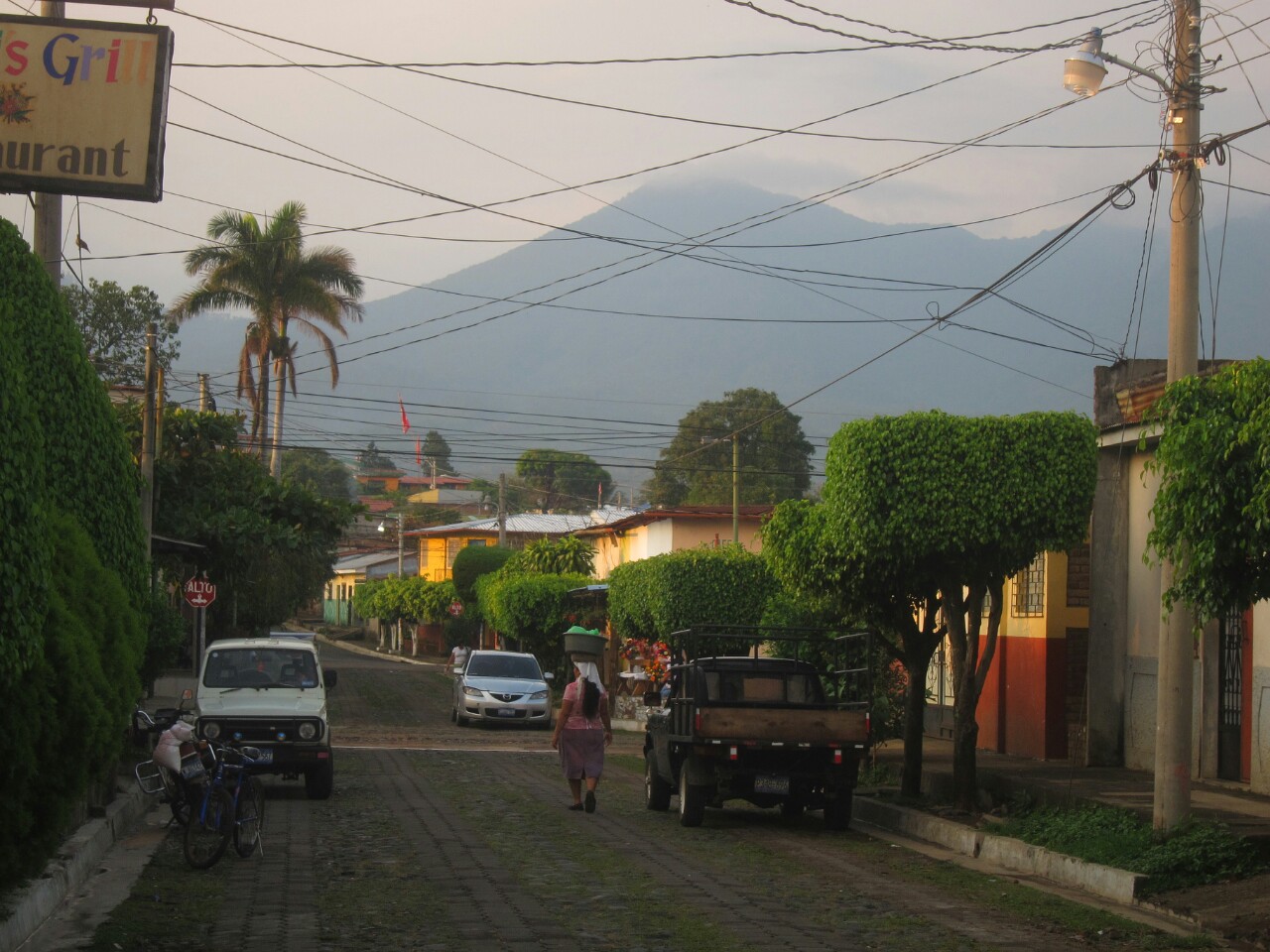
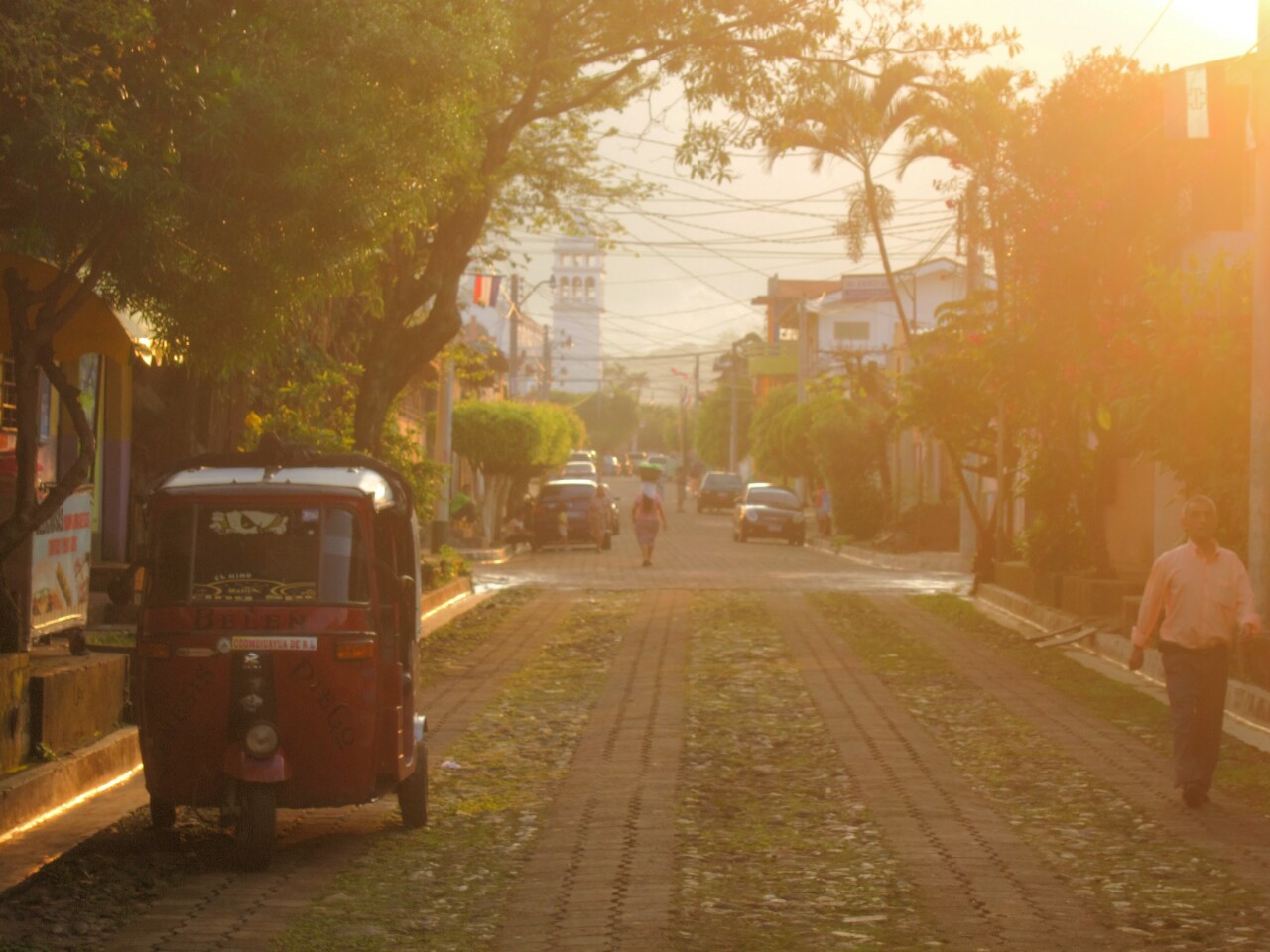
I don’t like food fests. Standing, or sitting on a curb with your feet in the gutter, sweaty, balancing a paper plate piled with messy food in one hand, a beer in the other, and trying to eat with a non-existent third hand. So why was I here? BBQ’d guinea pig, grilled iguana and iguana testicles, and fried frog.
I grew up an unadventurous eater. Burgers and ribs were my things. But I had friends who expanded my palate. I had a failure of nerve in Corcovado when I declined to eat termites straight from there nest, but I’ve eaten snake in Taipei and chocolate covered grasshopers in Oaxaca, and fish egg paste in Istanbul. I’m not a foodie, I’m not that refined, but I’ll try most things once.
The next morning, before the fair, I tagged along with two Frenchman and a guide to a nearby waterfall. The guide was necessary, as Maria, one of the hotel employees, said there were “cholos” who sometimes stalked the trail with machetes, waiting to relieve passerby of their possesions.
The hike took half an hour, and we swam in the freezing pool at the base of the falls. It started to rain, and I made myself useful after nosing in on Quentin and Flo’s hike by getting out my umbrella and using it to shelter our clothes.
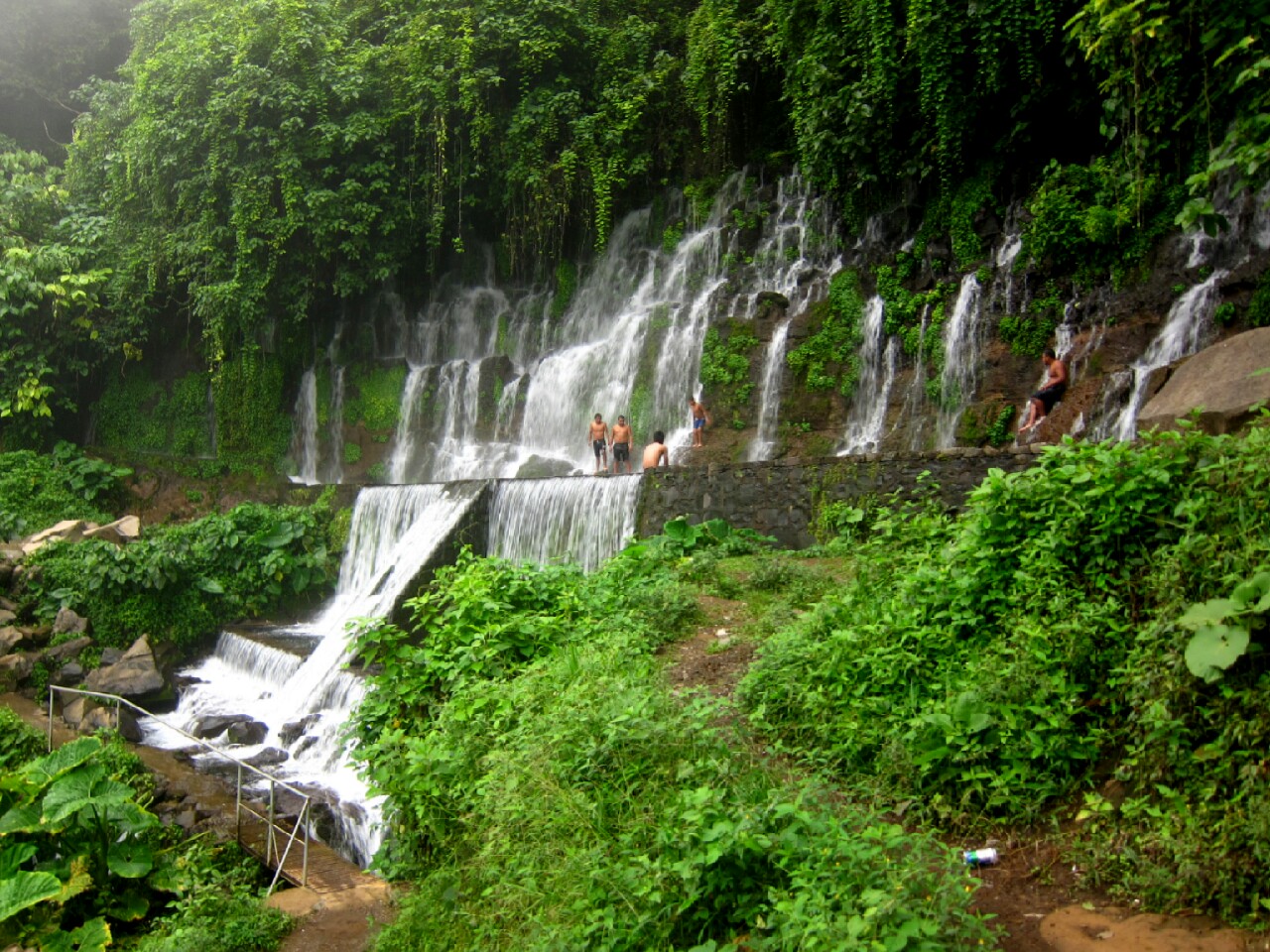
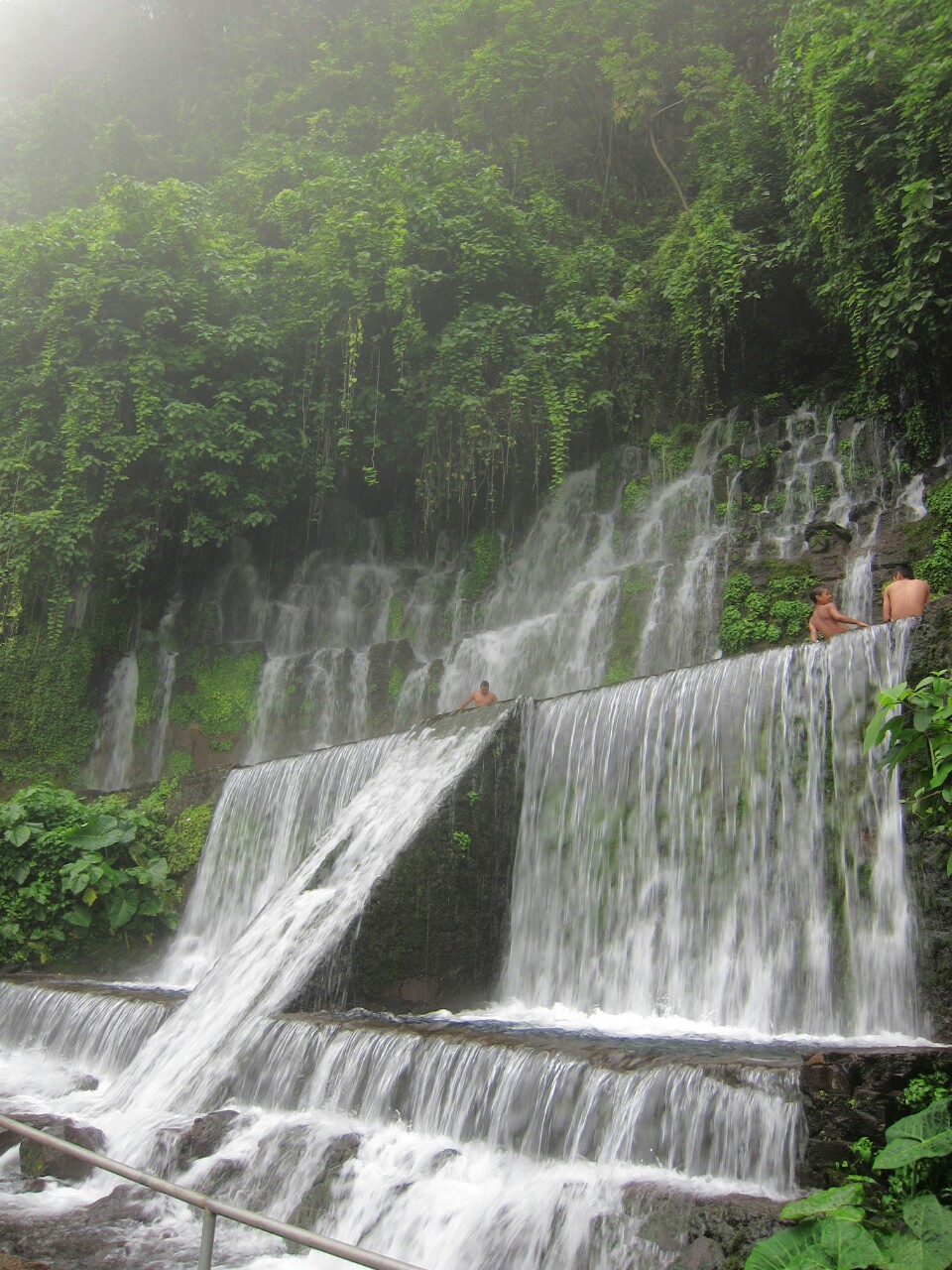
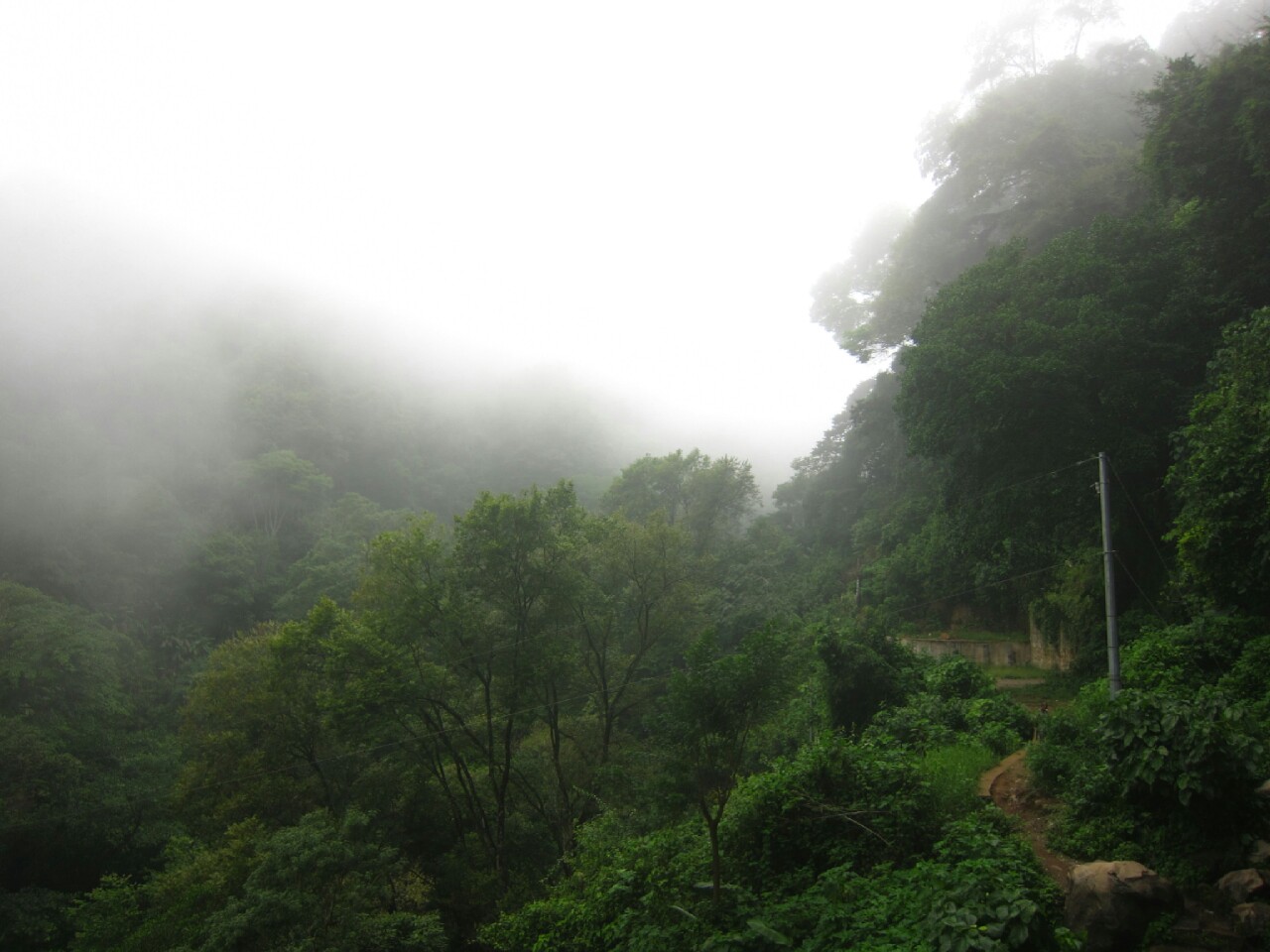
It rained until 3pm, when it let up just enough for me to go out to the fair. I walked up and down the two streets of booths. Every type of meat you could want was available, roasted, grilled smoked, BBQ’d, almost all for $5 a plate. But no guinea pig, iguana or frog that I could find. Plastic tables and chairs were set up, filled with family and friends. It was difficult being here by myself, as people stalked soon to empty tables the way New Yorkers stalk barstools, and I had no one to save a table while I went to order the food. I planned on ordering para llevar “to go” but when I ordered, a table opened up nearby, and the propietor sent someone to clear it and shoo people away while insisting I sit down. I had grilled rabbit with fried rice and thick cut roast potatos. I’ve never had rabbit before, and I don’t know if I like rabbit, or it was just that well-prepared. On my way out, I picked up a bowl of tortilla soup, not because I was still hungry, but because I can’t pass up tortilla soup. I took in back to the hotel and sat on the terrace and ate as the rain started to fall again.
The documentary started at 7:30pm. It was well done, the story of a womanizing revolutionary poet who was eventually killed by his comrades because they thought he was a CIA informant. People on the street read his poems,which were exquisite and heartrending. Eduardo Galeano was interviewed, and I realized that it was from one of his books that I knew the name. His comrades thought be was a CIA informant because a CIA plant, to neutralize him, told them he was a CIA informant.
After, I did my best to converse in Spanish with Quentin and Flo, who spoke well, and two of Cesar’s friends. We talked about the different countries in Central America and what we thought of them, Quentin had relatives in Mexico, which explained his Spanish. After awhile, we went out to a local bar, El Cadejo, where, my brain exhausted from translating, I mostly sat and listened.
The next morning, after two cups of coffee, real whole bean french pressed coffee, not the oversugared Nescafe I had been served in Nicaragua, I headed to another town on La Ruta de las Flores, Ataco. The bus was crowded, and I had to stand. The drive was supposed to be beautiful, but I couldn’t see any of it as the windows were below my field of vision.
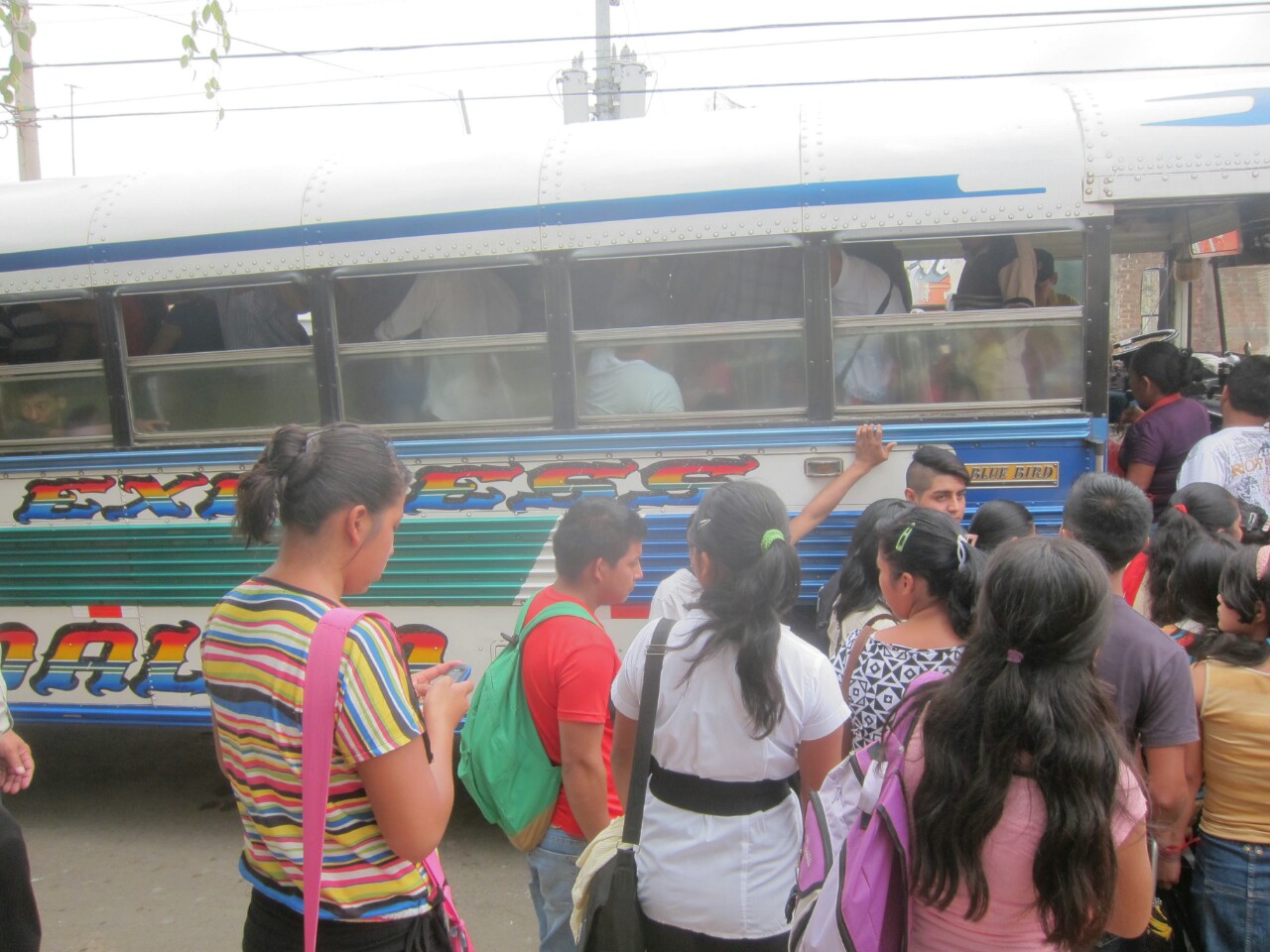
Ataco, was nice, a bit more down at the heel feeling than Juayua, but the Central Park was prettier, pine shaded and fronted on three sides by restaurant terraces. It also had a food fair, smaller, and after doing a couple laps and not seeing anything I couldn’t get in Juayua, I spent an hour walking around town and then headed back on the bus under rain threatening skies.
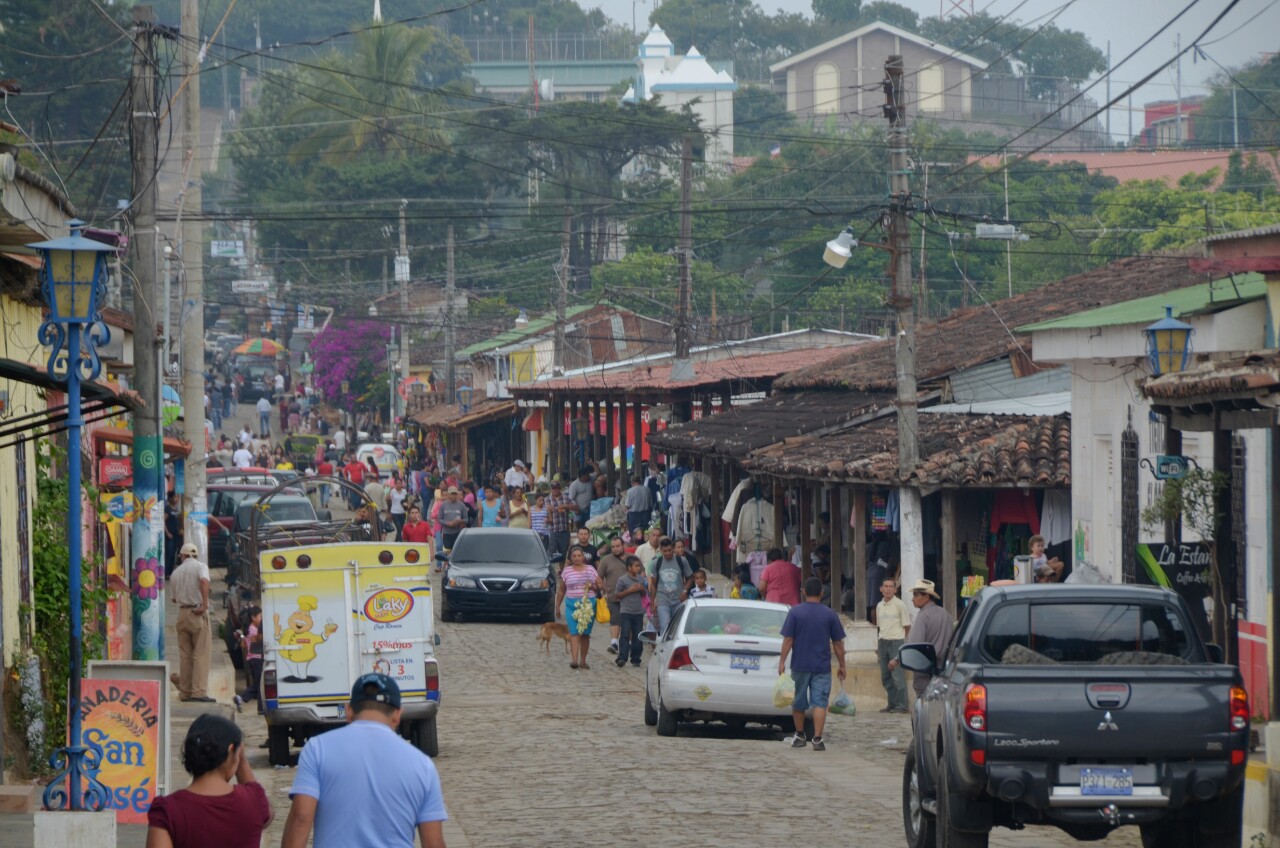
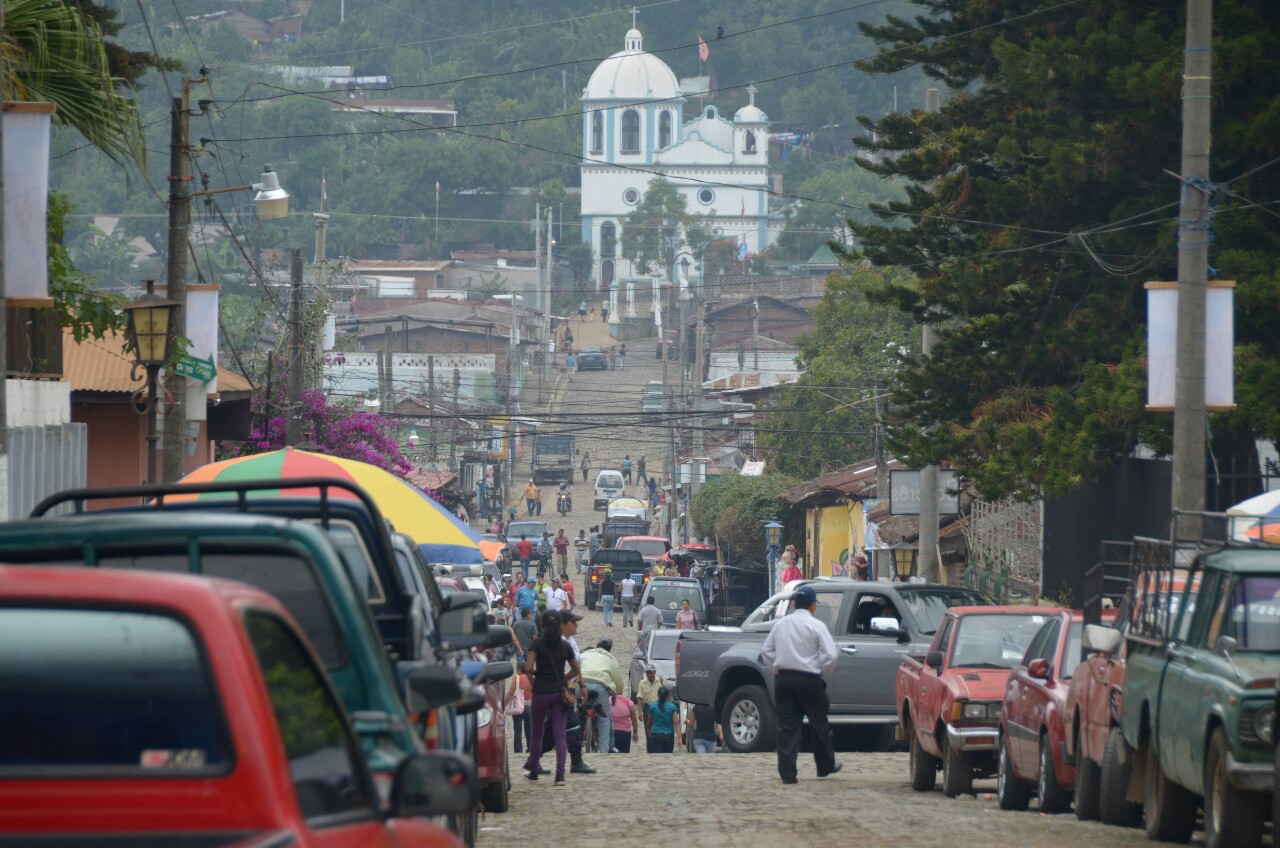
In Juayua, I found a a table near a booth selling BBQ pork. The food was good but the portions were smaller, so this time I was still hungry and followed it up with a large bowl of shrimp ceviche.
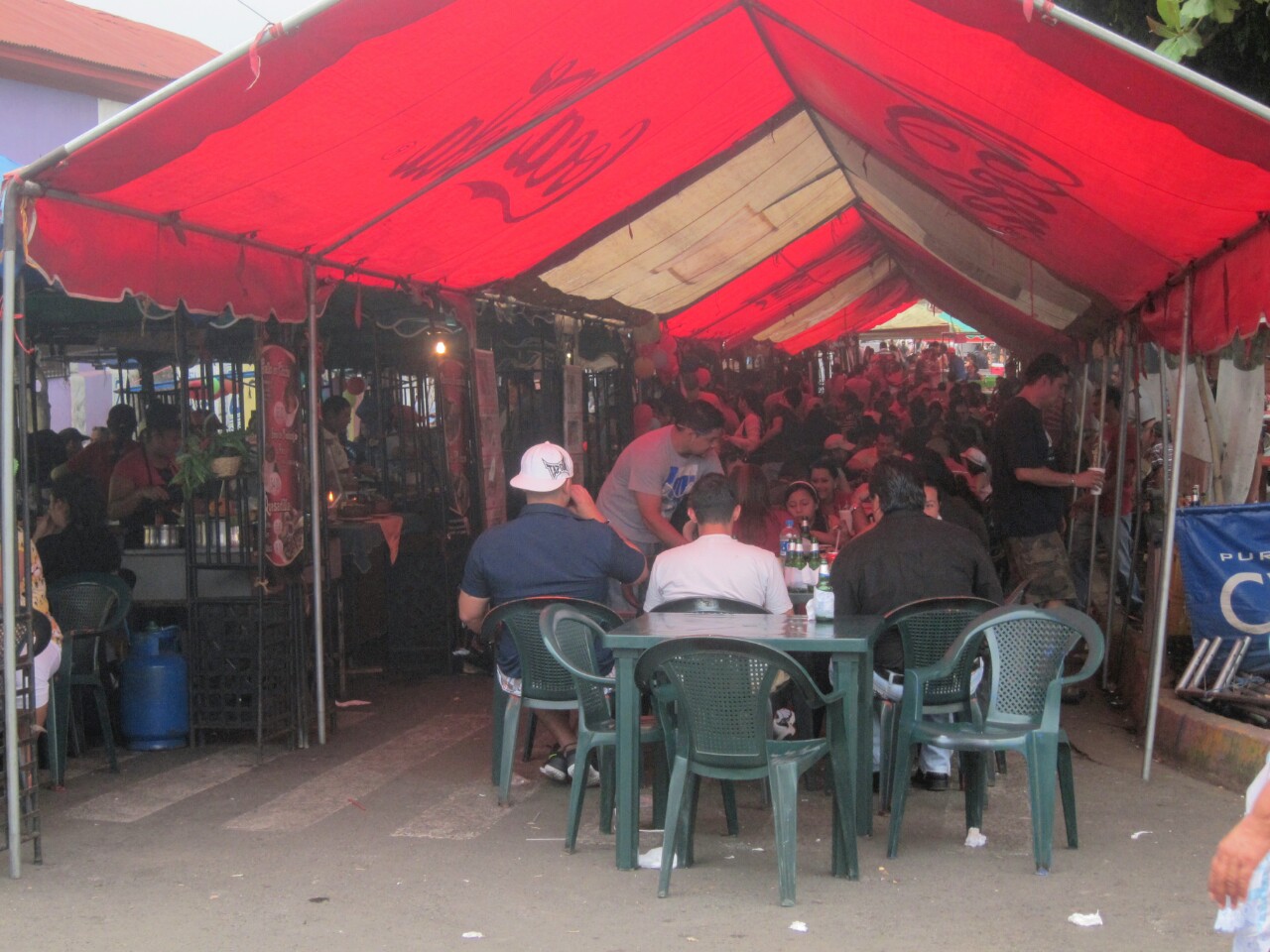
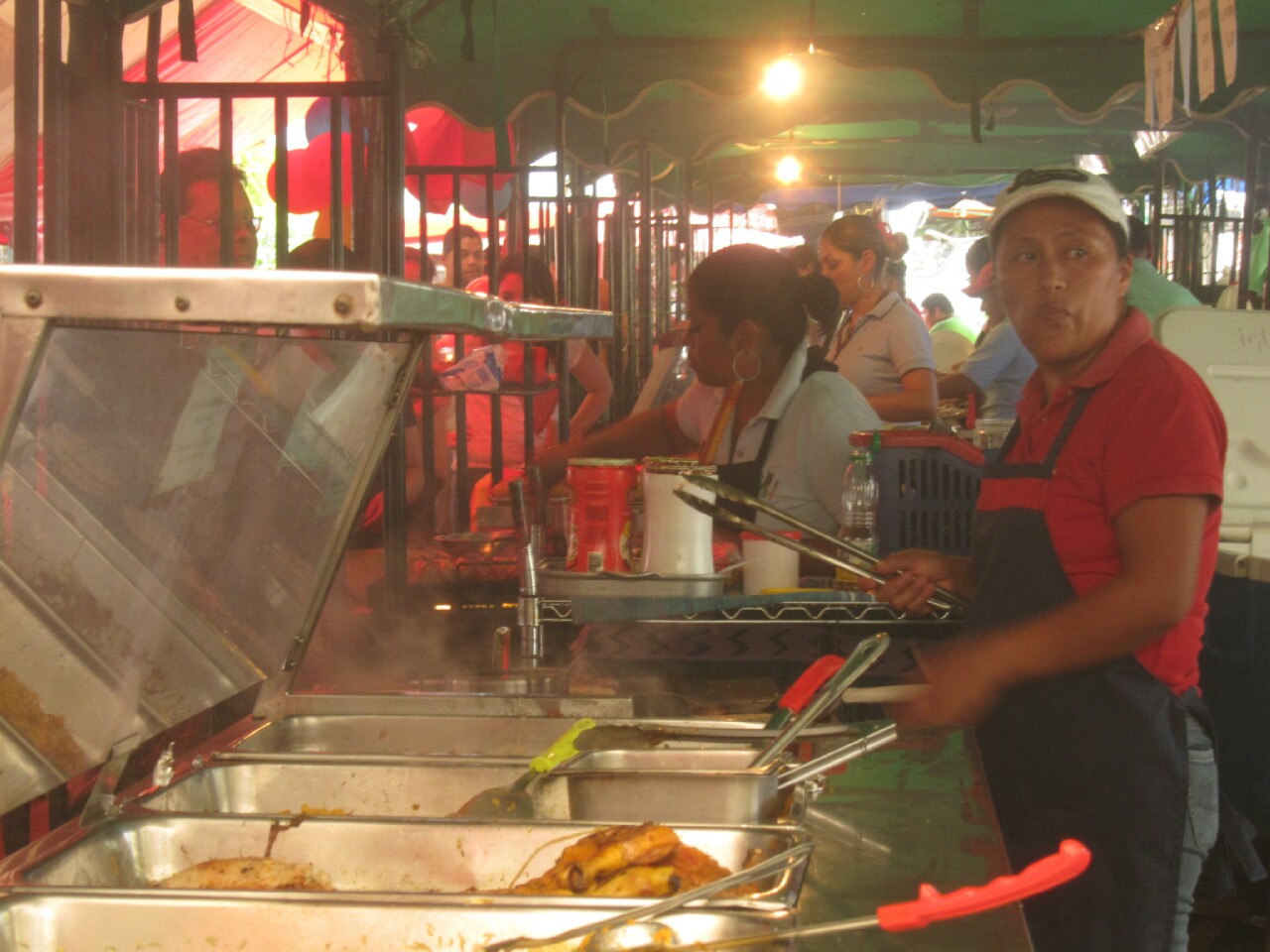
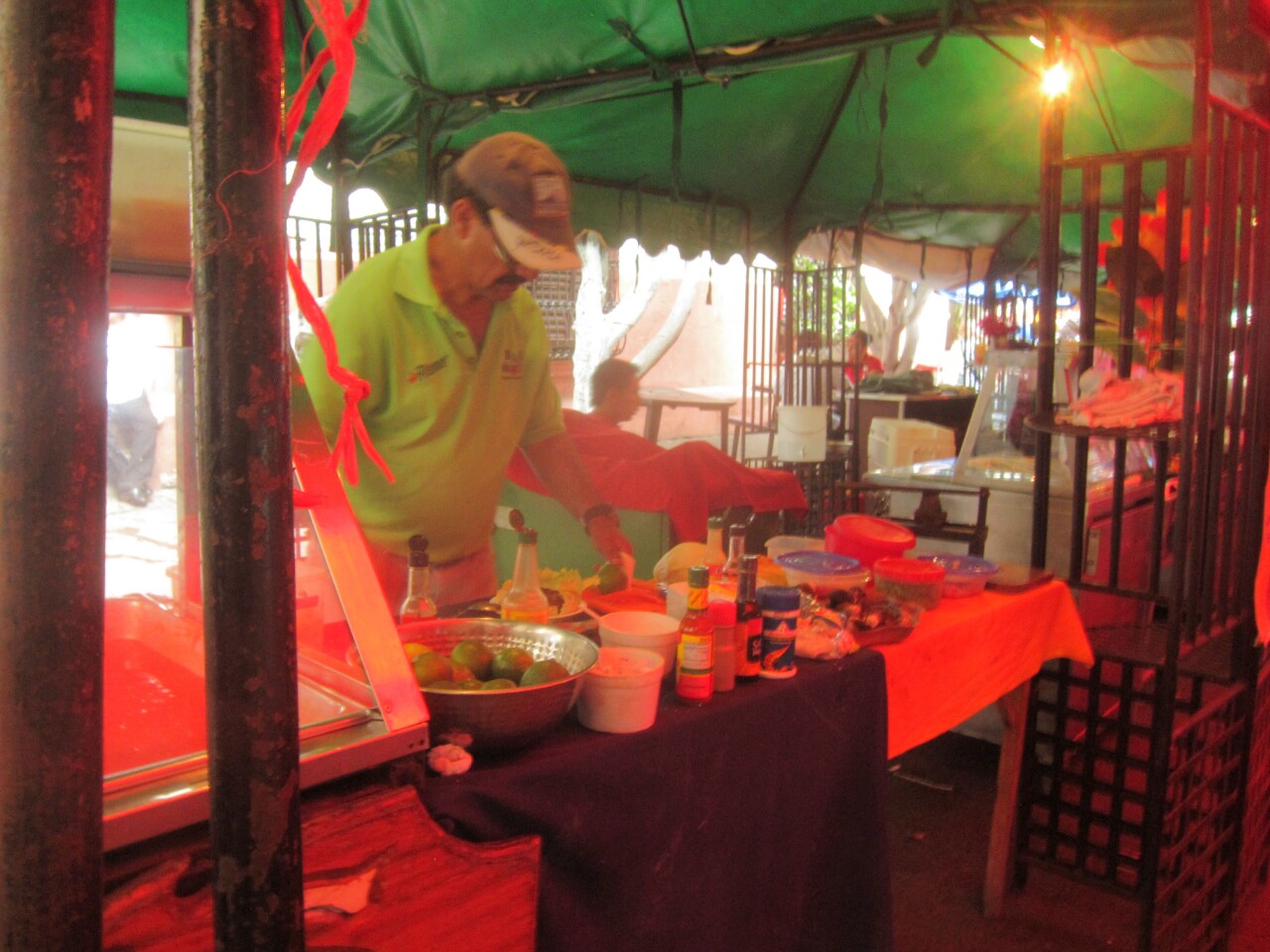
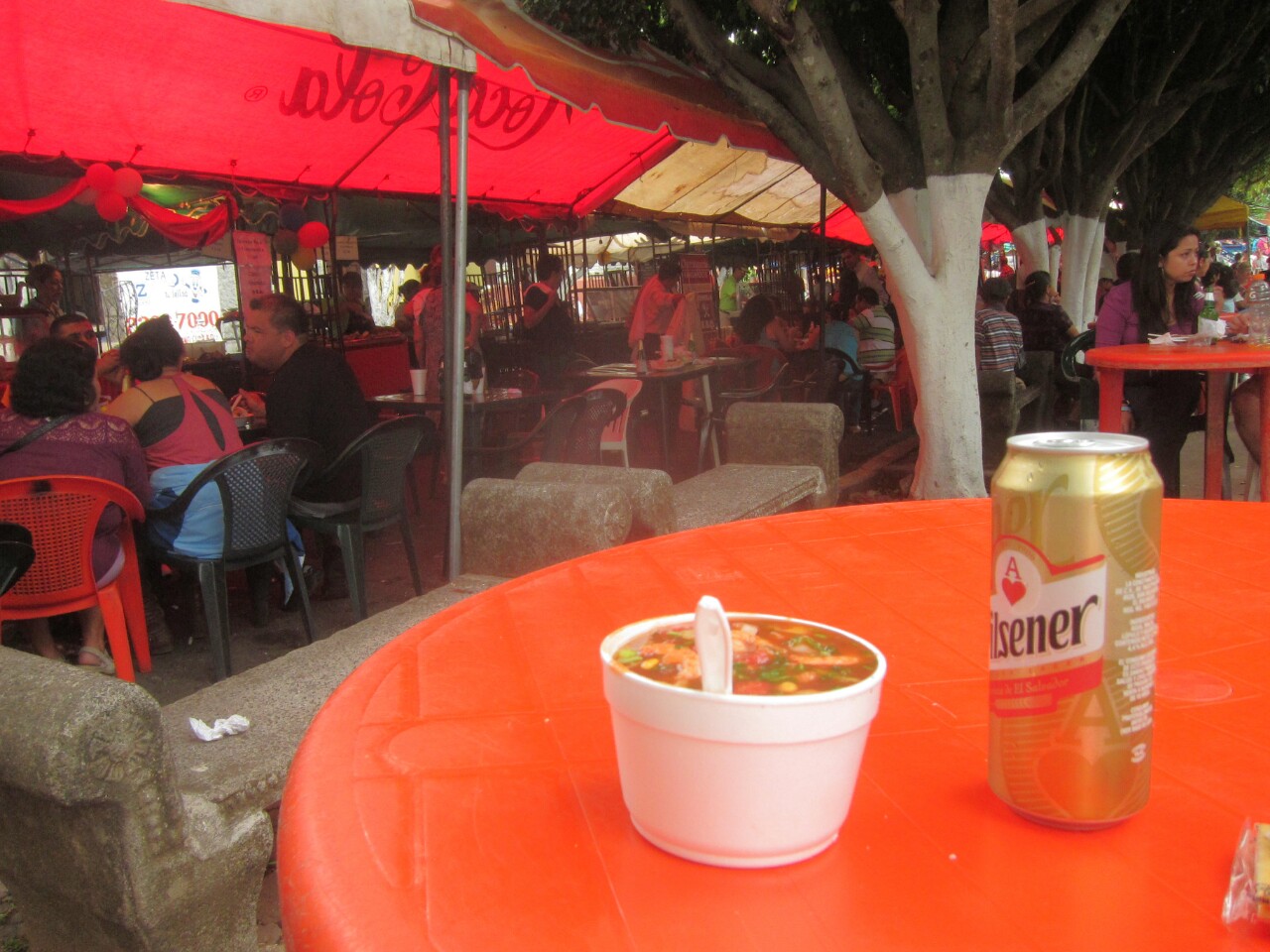
There was a band playing, and a man in a cowboy outfit walked around with a wireless microphone singing. People danced. Gaunt, leather skinned campesinos with missing teeth sat on benches and a man in a Zoro outfit gave horseback rides around the square.
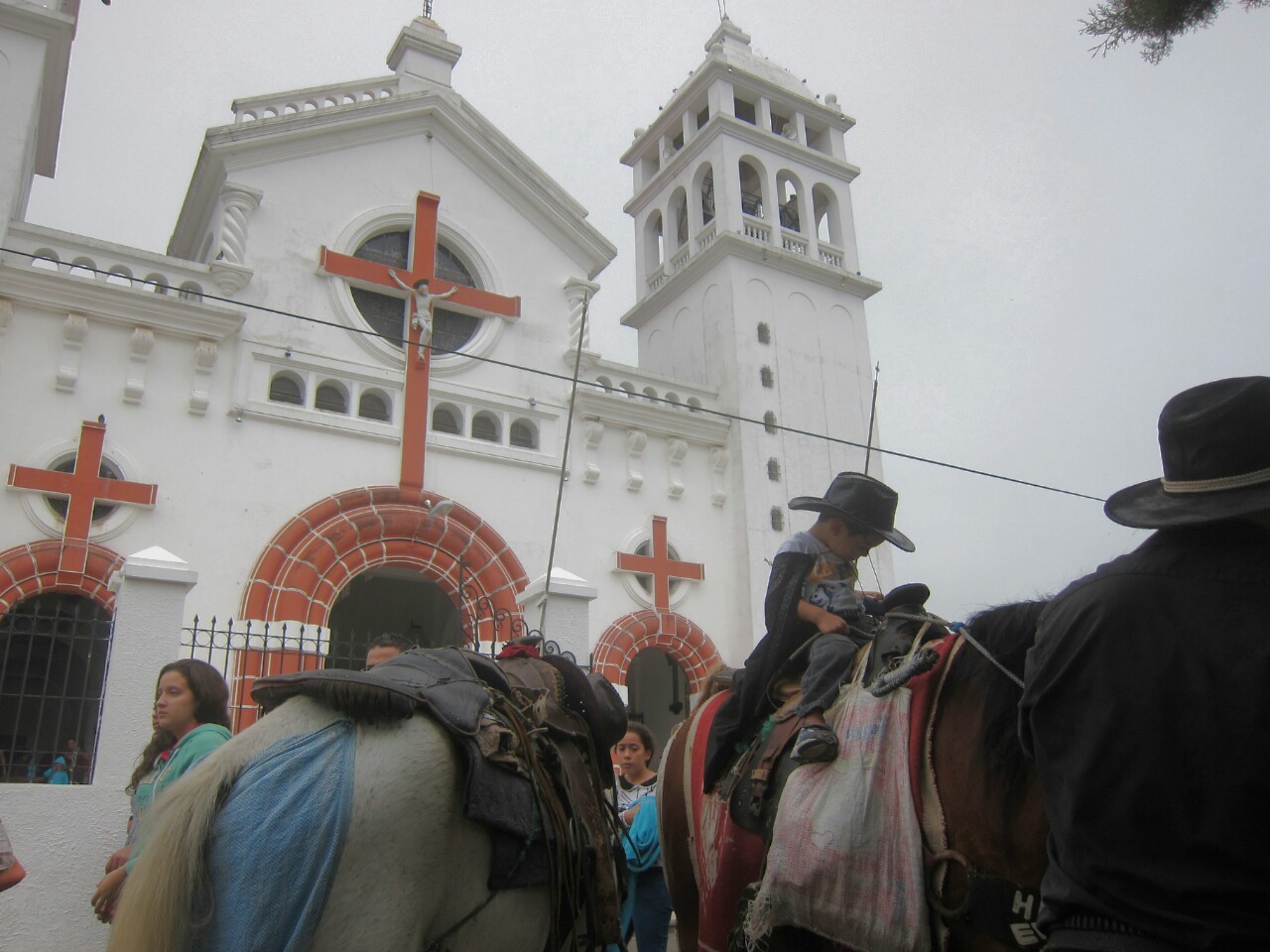
I head a woman calling ‘lomo de iguana’ but when I went to investigate, she was just selling bread baked in iguana shape.
After all that food, I didn’t need dinner, so I bought a couple cans of beer at the market and went back to the hotel. Despite myself, knowing I had a long day of buses ahead of me tomorrow to go from Juayua to Santa Rosa de Copan, Honduras, I stayed up till almost midnight, sipping my beer, smoking one of my last Masaya cigars, listening to dogs howl, the cheers from a soccer match nearby by, and and eventually watching and listening to the rain fall.
